Discover Dope Black Dads Podcast
Dope Black Dads Podcast

Dope Black Dads Podcast
Author: Dope Black Dads Podcast
Subscribed: 378Played: 23,365Subscribe
Share
© Dope Black Dads Podcast
Description
The Dope Black Dads Podcast is an adult-only podcast for all parents or adults preparing for parenthood. Led by Marvyn Harrison with contributions from the Dope Black Dads leadership as well as a host of special guests from the world of healing, media, parenting, TV/film, music, and beyond. We discuss everything from co-parenting, masculinity, and the Black experience all the way to our favourite Netflix show. Don't listen if you're expecting conversations about nappies!
Hosted on Acast. See acast.com/privacy for more information.
201 Episodes
Reverse
Black men are dying of cancer in silence. So we took a room full of dads, sons and survivors and built the most honest conversation they’ve ever had.This episode was recorded at Macmillan’s Open House, a home built to feel like the houses that raised us: soft light, old portraits, kettle on the stove, carpet holding the memories of every step. Into that house we brought a live conversation on men, fatherhood and grief.Marvyn Harrison is joined by:– Ibrahim Kamara, whose dad died of cancer on his birthday while he was locked alone in a Covid hotel– Paul Campbell, who was denied treatment, diagnosed in the same year as his brother and sister, and watched his father die from prostate cancer– Host and facilitator Ruben Christian, unpacking identity, masculinity and the cost of being “the strong one”Inside this episode:– The Black dad who had to fight his GP just to get tested– Why three siblings were all diagnosed with cancer in the same year– How a father hid his diagnosis from ten children and made one son carry the secret alone– Men explaining what grief actually feels like inside the body– The quiet ways race, culture and masculinity shape how we ignore symptoms– What good men actually need from their partners, friends and community– Why checkups aren’t a verdict, they’re a lifeline and a second chanceThe episode closes with “White Smiles”, an original song written about a dream of a father who finally returns smiling, with new teeth and no pain. Listen grounded, eyes closed if you can.If you love a Black man, live with one, are raising one or are one, this is the episode you send. Hosted on Acast. See acast.com/privacy for more information.
What happens when your father’s shadow is your biggest opponent? Marvyn Harrison breaks down Benn vs Eubank II — the fight that wasn’t just about punches, but parenting, legacy, and identity. From Nigel Benn and Chris Eubank Sr.’s 90s rivalry to their sons’ clash under the lights, this is a story about how fathers shape sons — and how sons fight to become men in their own right. Featuring deep analysis, emotional reflection, and a generational lens only Dope Black Dads could deliver.boxing, benn vs eubank, conor benn, chris eubank jr, boxing legacy, fatherhood, generational trauma, dope black dads, masculinity, fight review, redemption, british boxing, family rivalry, legacy, marvyn harrison, eubank trilogy, parenting lessons from boxing#DopeBlackDads #BennVsEubank #BoxingLegacy #Fatherhood #Masculinity #BritishBoxing #MarvynHarrison #EubankJr #ConorBenn #LegacyFight Hosted on Acast. See acast.com/privacy for more information.
In this episode of the Dope Black Dads podcast, Marvyn breaks down what it really takes to support a good man in 2025, without shrinking yourself or cosplaying a “good little wife.” He covers: • The truth about “something happening with men” — and why it’s about to go one of two ways• The viral Chanté Joseph article about women feeling ashamed to say “I have a boyfriend,” and what that reveals about how men are valued• Why humiliation content (fake throw-up pranks, mocking your man online) destroys respect and never builds the man you actually want• Misogyny vs misandry: why they’re not mirror images and why that distinction matters here• How you speak to your man: nagging vs affirmation, and why rants don’t land but clear, short statements do• The “tennis vs American football” mistake when men share feelings, and how to catch the emotional ball instead of smashing it back• What to do when he goes silent or withdrawn and you suspect more than “he’s just fine”• How to investigate his mood without the dead-end question “You alright?”• Respecting his pace of change instead of treating him like a broken service provider you ordered from an app• Why not every mood change is cheating: money, parents, pressure, identity, and all the other stress signals you keep missing• Turning the home into neutral ground so he doesn’t sit in the car dreading walking through the front door• The “driveway rule”: negotiating how much decompression time he needs and what you need once he comes in• Why there’s no serious “transition programme” for men moving from work-only identity into work + family, unlike the decades of systems put around women at work• How political and economic systems still profit from overworked, emotionally absent men, and what that means for your relationship• The truth: if your man is genuinely bad for you, you should leave; this episode is for people with a good man who’s struggling• The tactic almost nobody uses: sitting in silence, breaking the touch barrier, and offering safety instead of demanding it from a depleted man Hosted on Acast. See acast.com/privacy for more information.
Recorded in the middle of the night, Marvyn breaks down how New York elected its first Muslim, South Asian, democratic socialist mayor under Donald Trump, why California quietly rewired Congress with one ballot measure, and how Virginia and New Jersey just told the rest of America where voters actually stand. This is not a vibes recap. It’s a live autopsy on power, maps, money and hope. Full show noteTonight’s Dope Black Desk is not from Westminster or City Hall. Emotionally, it’s in New York, California, Virginia and New Jersey at the same time. Marvyn walks through the election results that look “local” on paper but actually redraw the global map of power in a Trump era. In this episode, he breaks down: • New York City electing Zoran Mamdani — 34-year-old democratic socialist, first Muslim and South Asian mayor, ex–housing counsellor, in the financial capital of the world• How Mamdani beat a disgraced former governor and a Republican talk-radio veteran, with Trump backing Cuomo instead of his own party’s candidate• Mamdani’s four “impossible” promises: free citywide buses, universal childcare, rent freezes, and city-run grocery stores in food deserts• Why bodegas, Yemeni owners, unions, taxi drivers, immigrants and young voters formed a single coalition and toppled an old political dynasty• Trump’s threats to punish New York and brand Mamdani a “communist”, and why that bluff could push him into full-blown war-crime territory if he actually follows through• The donor class, pro-Israel money, Gaza, genocide language and why this mayoral race became a referendum on who really owns American politics• How the middle class has been swapped out for racial hierarchy and why that model is breaking down in real timeThen Marvyn zooms out: • California’s Prop 50: a mid-decade redistricting move designed to cancel out Texas’s GOP map and hand Democrats up to five extra House seats• Why this is an “arms race on maps not manifestos” and how one technical vote can decide who controls Congress in 2026• Gerrymandering, the Supreme Court, state courts, and why Democrats finally stopped pretending they were “above” playing the same power gameHe finishes with the governor races: • Virginia: Abigail Spanberger, ex-CIA, becomes the state’s first woman governor by running on anti-chaos, cost of living and competence• New Jersey: Mikie Sherrill, Navy helicopter pilot and former prosecutor, wins on affordability, child tax credits and abortion protection• Why voters in ex-red states are choosing stability over Trump-style chaos, even when Republicans put forward barrier-breaking candidates• How all of this connects back to London, food deserts, mini-mart markups, and a UK political class turning every square metre of life into a productUnderneath the US headlines, this is an episode about: • Who draws the map• Who pays the price• And whether any of this can still translate into a city or a country you can afford to raise a family in Hosted on Acast. See acast.com/privacy for more information.
I opened my ChatGPT vault and read the last five things I asked it: the best loose-leaf tea on earth, a high-leverage sales plan, a global parenting pivot, the truth behind “quotas” in ads, and the Antwone Fisher poem that hits like a freight train. Momentum storytelling. Zero fluff. High signal. Project 1Show notes (long, with skim-fast formatting)• Why your teabag tastes mid, and the five loose-leaf brands worth real money• Designing a killer partnerships engine in public• Upgrading Dope Black Dads into a global parenting community without changing the name• Are “quotas” in advertising real or a culture-war decoy? Data and context• “Who Will Cry for the Little Boy?” and the cost of growing up without a blueprint• What it takes for Black men to make it to 60 with purpose and healthReferenced from the live ramble captured in this episode. Hosted on Acast. See acast.com/privacy for more information.
This week on the Dope Black Dads podcast, we dive into a powerful and timely story. Victoria Beckham has revealed in her new Netflix documentary that her eating disorder made her “good at lying” A raw admission that sheds light on a condition too often hidden in silence.Beyond the celebrity headline, this conversation is about what it means for our families, our children, and our communities. Eating disorders are not about vanity; they’re serious medical and mental health conditions that can affect any child, regardless of background.In this episode, we explore:Victoria’s experience of secrecy, shame, and resilienceHow eating disorders impact self-esteem, family life, and identityThe signs parents and carers should look out for in children and teensWhat to do if you suspect your child is strugglingWhy open, honest conversations at home can break the cycle of silenceFor Black families especially, where mental health challenges often go undiscussed, this is an opportunity to create safe spaces for truth and healing. Our children deserve to feel loved, respected, and supported in every part of who they are.If this episode raises concerns for you, please seek support: in the UK, Beat Eating Disorders offers free, confidential advice at beateatingdisorders.org.uk. And remember no parent is alone in this journey.Join us as we use Victoria Beckham’s story as a springboard to talk about how we can show up better for our children, our communities, and ourselves. Hosted on Acast. See acast.com/privacy for more information.
For decades, families of the 97 Hillsborough victims were denied honesty and justice. Public officials lied, delayed, and covered up. Now, the long-awaited Hillsborough Law, formally the Public Office Accountability Bill, introduces a legal duty of candour, forcing officials to tell the truth during major disaster investigations, with criminal penalties if they don’t.In this episode, Marvyn Harrison breaks down why this law matters far beyond football. From Grenfell survivors to Post Office workers, from Black families in police custody cases to maternity wards, cover-ups cost lives, trust, and justice.This is about:Truth as protection for families.Ending decades of lies and silence.Rebuilding trust in institutions.Justice for communities failed by the state.Setting a global example of truth as law.Truth, justice, and accountability aren’t optional. They’re non-negotiable. Hosted on Acast. See acast.com/privacy for more information.
Back in the 1930s, love was about survival—one person brought money, the other ran the home. By the 1990s, polarity and attraction became the focus. But in 2025? That’s not enough. Today, real connection needs three things: survival, desire, and alignment.In this episode, Marvyn Harrison explores how blurred gender roles, economic independence, and new expectations around emotional intelligence have reshaped what it takes to build lasting relationships. He asks the tough questions:Can you survive together?Do you still desire each other?Are you truly aligned in values, money, health, parenting, and vision?If you’ve managed all three, you’re not just lucky—you’re rare. Listen in to rethink love, dating, and marriage in a modern world where commitment is harder, but also deeper. Hosted on Acast. See acast.com/privacy for more information.
Launching this Father’s Day, Not Just a Day, A Legacy is a deeply personal and culturally relevant essay series and visual campaign from Marvyn Harrison — founder of Dope Black Dads. Through intimate letters, storytelling, and healing guidance, the campaign invites fathers, children, and communities to reflect, reconnect, and reimagine legacy beyond absence. Hosted on Acast. See acast.com/privacy for more information.
When my son was born, I thought I had to choose between staying home to give him everything or going back to work and risking missing the moments that matter. But the truth is, you don’t have to choose. From September, eligible working parents of children aged 9 months up to school age could get up to 30 hours of funded childcare a week, over 38 weeks a year — worth up to £7,500 in savings. That’s not just money back; it’s time to work, breathe, build, and still be present for your child. Apply by 31 August.Check your eligibility at childcarechoices.gov.uk#ChildcareChoices @educationgovuk #ad Hosted on Acast. See acast.com/privacy for more information.
Today’s episode is a throwback episode with Kate Ferdinand — mother, entrepreneur, and host of the award-winning podcast Blended. We discussed what began as a WhatsApp group is now a powerful platform supporting Black and mixed-heritage fathers across the world.In this episode, Kate and Marvyn explore how our own childhoods shape the way we parent, the importance of emotional honesty, and how to have age-appropriate conversations with children about race, identity, and belonging. It’s a powerful discussion about masculinity, legacy, and learning to be the parent you needed. Hosted on Acast. See acast.com/privacy for more information.
From Kool Herc’s Kingston-style block parties to Kendrick’s Grammy sweeps and Carti’s moshpit mayhem, who really ran rap every year since 1979? In this definitive timeline, we break down the Big 3 artists of each year, blending mainstream dominance, cultural impact, and lyrical integrity.Featuring heavyweights like LL Cool J, OutKast, Missy, Future, Nicki Minaj, and J. Cole, this episode challenges revisionist history and makes room for the artists who actually defined the sound, the streets, and the stats.Was Drake too dominant to leave off 2019? Should LL have been #1 in ’87? Did we underrate Future’s run? Is Kendrick now the GOAT closer? We’ve got facts, footnotes, and a lot of fire takes.Whether you’re an old-head, new-school, backpacker or trap loyalist, this episode is your hip-hop history cheat code. Hosted on Acast. See acast.com/privacy for more information.
⚡ THE CHALLENGEI forced my household to try twenty one penny pinching moves in one week. No edits. No mercy. WHAT HAPPENED• Hack 3 sparked a shower time race • Hack 7 killed takeaway cravings • Hack 14 slashed our energy bill in thirty seconds • Hack 21 broke my Netflix habit and the kids survived FULL LIST1 Kill phantom power at bedtime 2 Daily smart meter checks … all the way to 21 Rotate streaming subs like a pro WHY LISTEN✔ Zero cost entry ✔ Kid approved fun ✔ Laugh out loud dad banter Hosted on Acast. See acast.com/privacy for more information.
What does the government’s new health plan actually mean for your community?In this exclusive, no-holds-barred Q&A, Marvyn Harrison sits down with Wes Streeting, Secretary of State for Health and Social Care, to ask the questions that matter most to working-class and Black British families.We dive into:The postcode lottery in careWhy Black men aren’t trusting the NHSWhere the money’s really goingAnd how this plan could actually save lives—or just become another empty promiseThis is the conversation the government has to hear. And you need to hear it first. Hosted on Acast. See acast.com/privacy for more information.
What’s it really like being Education Secretary? In this powerful conversation, Bridget Phillipson marks her first year in post by speaking openly with Marvyn Harrison and young voices from Dope Black Dads. She reflects on the teacher who changed her life, discusses her priorities for children with special educational needs and disabilities (SEND), and sets out her vision for mental health in every school. This episode goes beyond policy, it’s about care, culture and community.Topics covered:Why representation and personal connection matter in educationReforming SEND support for families and schoolsEmbedding mental health into the school dayCreating an inclusive education system that works for all Hosted on Acast. See acast.com/privacy for more information.
Is there still honour in hip-hop? Can rap teach us how to be better men?In this episode, we take a deep dive into the extraordinary journey of Clipse—brothers Pusha T and No Malice—uncovering what their story reveals about masculinity, loyalty, and principled living. From “Grindin’” lunch tables to Louis Vuitton runways, we walk through their full timeline, pulling out the life lessons embedded in their rhymes, career moves, and public silence.We explore how No Malice left the rap game for a higher calling, why Pusha T confronted giants like Drake and Kanye, and how the Clipse reunion has become a masterclass in grown-man artistry. Beyond the beefs and bars lies a deeper philosophy: patience, boundaries, spiritual audit, and the refusal to compromise.This is more than a fan tribute. It’s a roadmap. For fathers, brothers, creatives, and thinkers. For anyone navigating manhood in a world that constantly tests your moral compass.Featuring critical moments:The legacy of Hell Hath No Fury and DaytonaThe Kanye fallout and GOOD Music exitThe calculated silence in response to Jim JonesThe rollout of Let God Sort ‘Em Out and what it says about ownershipDiaspora echoes through minimalist Neptunes beats and patois slangWhy Drake had him banned from Canada—and why that doesn’t matterClipse didn't just make music. They made a code. And it still holds. Hosted on Acast. See acast.com/privacy for more information.
In this episode, Marvyn Harrison asks a question that shifts the way we show up in our relationships: How can I love you better?This is a practical, vulnerable reflection on how love evolves over time, and why checking in with our partners, children, and friends matters more than ever.From the changing landscape of fatherhood to the emotional intelligence needed for deep connection, this is a must-listen for anyone who wants to love with intention and grow while doing it.🎧 Talking points include:– Why love must evolve with growth– How to ask the question without ego– Common responses and how to receive them– What to do when the answer challenges you– Building emotional fluency as Black men and fathersThis episode is your reminder that emotional leadership begins at home. Hosted on Acast. See acast.com/privacy for more information.
Imagine Friends… but Black.Not just a race-swap, but a complete cultural remix.In this episode, we explore what a modern-day, all-Black reboot of the iconic 90s sitcom could look like, set in Hackney, rooted in today’s Black culture, with characters that reflect our reality.We break down:The reimagined character archetypesThe new hangout spot (spoiler: it’s not Central Perk)The themes that would actually resonate today—gentle parenting, therapy bills, ghosting during Mercury retrogradeWhy this show would shift culture and go viral across every platformFrom the trap-jazz café to the Pan-African podcast host, this isn’t Friends.This is FAM.🎧 Tap in and tell us: would you watch this show?Learn more about Instagram Teen Accounts by visiting https://familycenter.meta.com/uk/our-products/instagram/ Hosted on Acast. See acast.com/privacy for more information.
⏱️ THE CHALLENGEI put 20 parent-approved hacks to the ultimate test on live Sports Day—no retakes, no mercy. WHAT HAPPENED• Tip #3 nearly caused a water-fight 🤣 • Tip #7 saved £50 in 10 seconds • Tip #14 kept my son’s muscles warm like a pro sprinter FULL HACK LIST1. Balanced breakfast (slow-release carbs) 2. Pre-hydration strategy 3. Super-labelled bottle trick … all the way to 20. Capture memories, not just photos. WHY LISTEN✔ Zero-cost fixes ✔ Kid-approved fun ✔ Stress levels: obliterated CHALLENGE YOUTry three hacks, tag @DopeBlackDads with #SportsDayBoss, and I’ll shout-out the best video on next week’s show. Hosted on Acast. See acast.com/privacy for more information.
What if the key to your peace isn't reconciliation, but release?In this solo episode, Marvyn Harrison offers a detailed, compassionate guide for anyone navigating unresolved feelings toward an absent, distant, or emotionally unavailable father. You'll learn:Why closure matters (even without reconciliation)How to know if you're ready for contactA safety-first outreach planWord-for-word scripts for conversationAftercare tips for the 72-hour emotional falloutWays to navigate reluctant siblingsOne powerful mantra to carry with youWhether you're seeking answers or simply looking to lay old pain to rest, this episode gives you the tools, structure, and emotional protection to take your next step with courage. Hosted on Acast. See acast.com/privacy for more information.




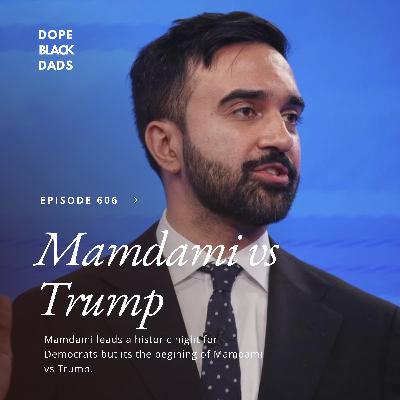

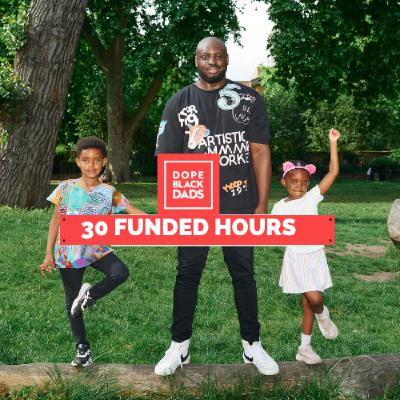
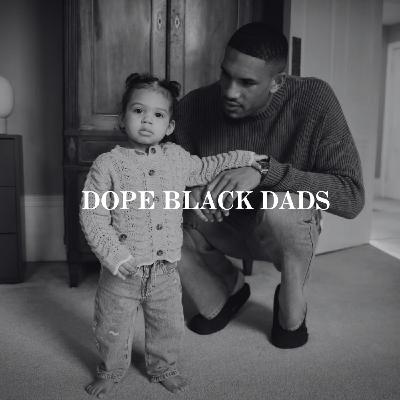

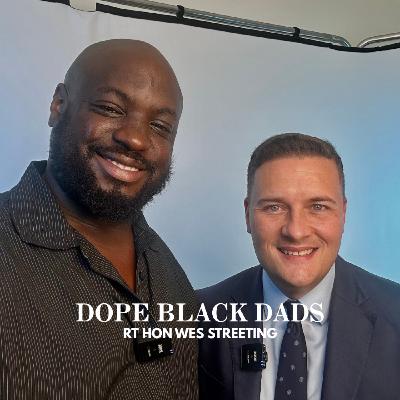
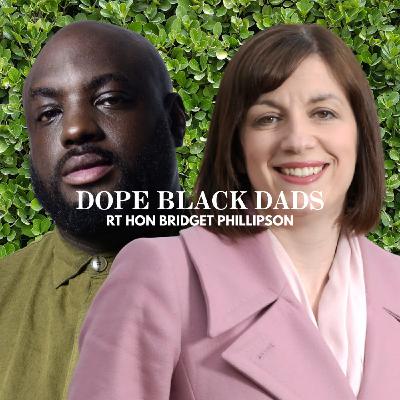


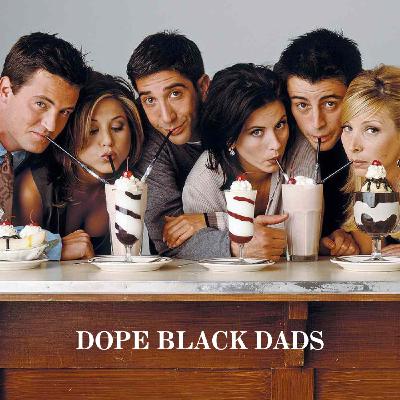





Great Podcast, really enjoyed it. This has got me thinking about my own experiences and about how I define my Blackness, and the ways We define Blackness.
Great talk with some good points raised 👍🏾